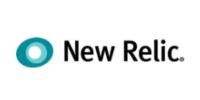Streamlined Analytics & Marketing Tags
Professional tag management that improves site performance while maintaining accurate tracking and marketing data.
- ✓ Google Tag Manager implementation
- ✓ Analytics and marketing pixel setup
- ✓ Performance-optimized tracking
- ✓ GDPR-compliant configuration

Frequently Asked Questions
Instead of installing multiple plugins that can slow down your site, we implement a single, optimized Google Tag Manager solution that handles all your tracking needs. This improves site performance while maintaining comprehensive analytics coverage.
Yes, we manage the complete process: creating your GTM account, implementing the container, configuring basic tracking, and setting up appropriate user access levels. You get a ready-to-use analytics system with zero technical hassle.
Our standard implementation includes form submissions, click tracking and conversion tracking.
We use built-in error checking, preview mode, and automated testing to verify all tracking is working correctly before deployment. Regular monitoring ensures continued accuracy of your analytics data.
Yes, we can either enhance your current setup or migrate it to our optimized implementation. We ensure a smooth transition with no data loss and improved performance.
Our system includes version history and instant rollback capabilities. If an issue occurs, we can immediately restore a previous working version while we resolve the problem.
Yes, of course! If you're comfortable with tag management, we can provide you with access. However, most agencies prefer to let us handle technical implementations to ensure accuracy and prevent conflicts.
Additional tracking features like custom events, marketing pixels, or advanced analytics can be added through our Content Operations service. This ensures professional implementation without compromising site performance.










